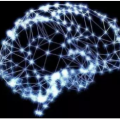Khandelwal et al. (2020) use a k-nearest-neighbor (kNN) component to improve language model performance. We show that this idea is beneficial for open-domain question answering (QA). To improve the recall of facts encountered during training, we combine BERT (Devlin et al., 2019) with a traditional information retrieval step (IR) and a kNN search over a large datastore of an embedded text collection. Our contributions are as follows: i) BERT-kNN outperforms BERT on cloze-style QA by large margins without any further training. ii) We show that BERT often identifies the correct response category (e.g., US city), but only kNN recovers the factually correct answer (e.g., "Miami"). iii) Compared to BERT, BERT-kNN excels for rare facts. iv) BERT-kNN can easily handle facts not covered by BERT's training set, e.g., recent events.
翻译:Khandelwal等人(2020年)使用 k-earest-neighbor (kNN) 组件来改进语言模型的性能。我们表明,这一想法有益于开放式问题回答(QA) 。为了更好地回顾培训期间遇到的事实,我们将BERT(Devlin等人,2019年)与传统的信息检索步骤(IR)和对嵌入文本收藏的大型数据库的KNN搜索结合起来。我们的贡献如下:i) BERT-kNN在不经过任何进一步培训的情况下,大幅度地在凝木式QA上完成BERT。 (ii) 我们显示,BERT经常确定正确的回答类别(例如美国城市),但只有 kNN才会恢复真实正确的回答(例如“Mami”)。iii 与BERT相比,BERT-kNN在稀有事实方面是优秀的。 iv) BERT- kNNN可以很容易地处理BERT的培训没有涵盖的事实,例如最近的事件。




